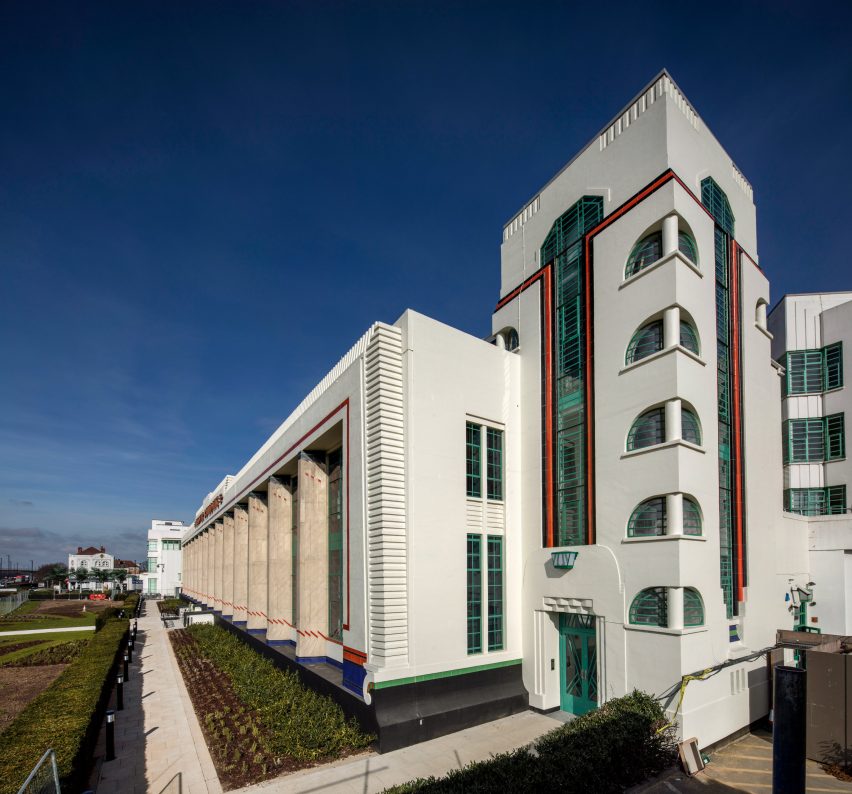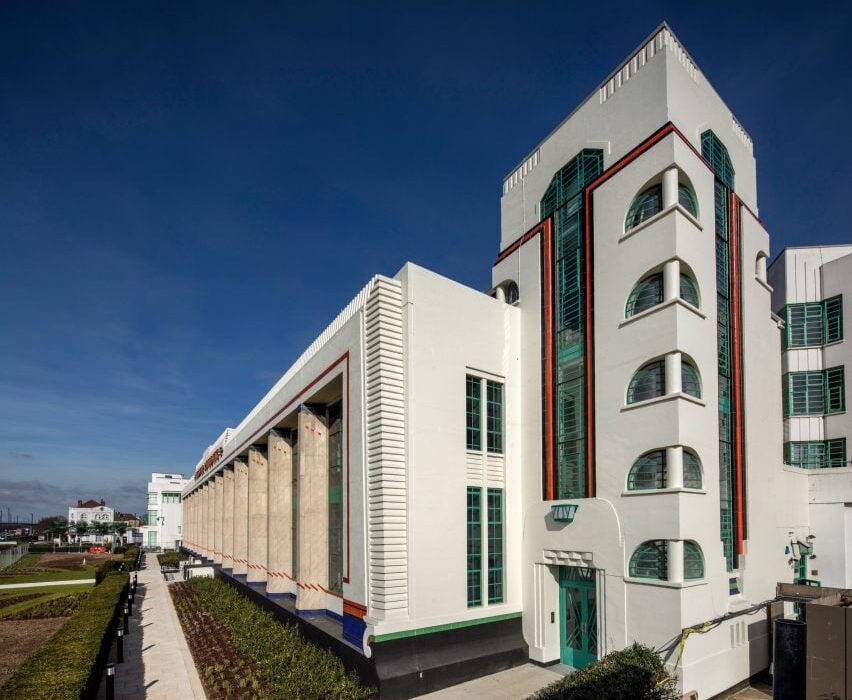Smith Mordak named CEO of UKGBC at “critical period” for sector
The UK Green Building Council has announced that architect and Dezeen columnist Smith Mordak will become the charity’s chief executive officer.
Mordak will be leaving their current role as the director of sustainability and physics at British engineering firm Buro Happold to take up the full-time advocacy role and help the UK’s built environment sector to halve its emissions by 2030.
“We look forward to their leadership of the team in this critical period for taking urgent and effective action to limit and reverse environmental degradation,” said Sunand Prasad, the chair of UKGBC’s board of trustees.
“Smith combines a deep, science-based and systemic understanding of the climate emergency with a clear-sighted, principled and pragmatic approach for what needs to be done in response.”
“Our actions over the next few years will have an outsized impact”
Mordak is a multi-award-winning architect and engineer, having co-founded London firms Interrobang and Studio Weave before going on to work at Buro Happold.
Alongside this, Mordak has a long-standing history in driving industry action on climate change, as a board member of the Journal of City Climate Policy and Economy, a former design advocate for London mayor Sadiq Khan and a steering committee member at climate action group Architects Declare.

As a nationally elected councillor at the Royal Institute of British Architects (RIBA), they also edited the landmark Built for the Environment report that was published by RIBA and Architects Declare ahead of COP27.
“We live in existentially challenging times,” Mordak said. “Our actions over the next few years will have an outsized impact on the Earth’s ecosystems and on many generations to come.”
“I’m honoured that I’ll be playing my part in this crucial period as part of this powerful change-making coalition.”
UKGBC also names new deputy chief executive
Mordak will be taking over the role from Julie Hirigoyen in June, who last year announced her decision to step down after more than eight years at the helm.
“My decision to stand down was a challenging one,” Hirigoyen said at the time. “But I believe that fresh direction will allow for an infusion of new creative ideas at a pivotal moment in time, ahead of the step-change required to 2030.”
UKGBC set out a new strategy for 2025 just last May, in recognition of the fact that more ambitious short-term targets need to be set to help the industry halve its emissions by 2030 and stabilise global warming around the crucial 1.5-degree threshold.
The charity is also promoting Simon McWhirter, its current director of communications, policy and places, to deputy chief executive to strengthen his role ahead of the UK’s next general election.
In his new role, McWhirter will have a “laser focus across international, national and local policy work”, UKGBC said.
Previously, Mordak has reported on two different Conferences of the Parties for Dezeen – both COP26 and COP27 – as well as penning opinion pieces on everything from strategies for passively cooling buildings to the green jobs transition.


